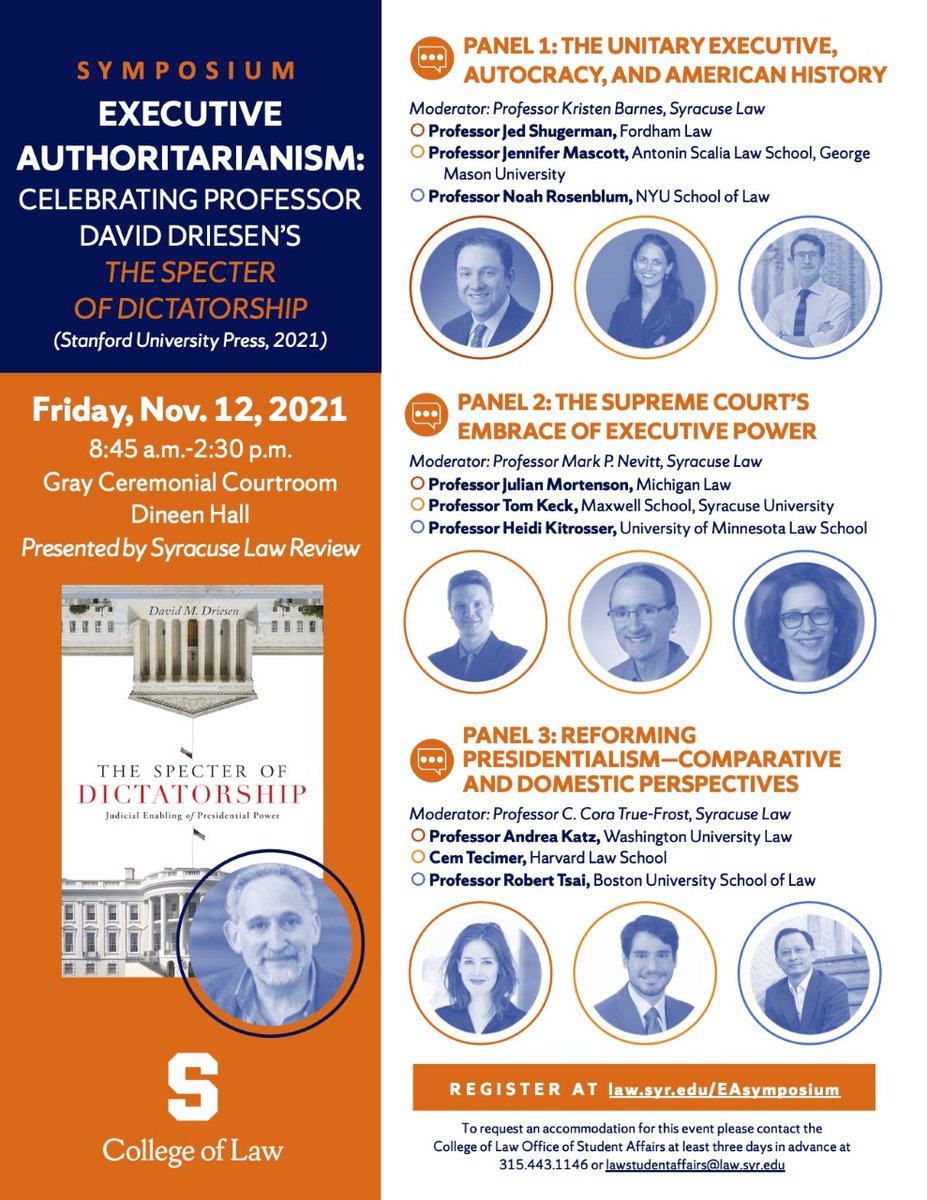
A new thread on originalism myths:
“The Indecisions of 1789: An Originalism Cautionary Tale” documents another series of misuses of sources by originalist unitary executive theorists.
The Roberts Court relied on this myth to expand presidential power: shugerblogcom.wordpress.com/2021/12/08/the…
“The Indecisions of 1789: An Originalism Cautionary Tale” documents another series of misuses of sources by originalist unitary executive theorists.
The Roberts Court relied on this myth to expand presidential power: shugerblogcom.wordpress.com/2021/12/08/the…
2/ The mythic "Decisions of 1789" is that a House majority endorsed the unitary theory of implied presidential powers.
But only 16 of 53 (30%) fit that bill.
Trying to find more votes, Prakash miscategorized many members or sources.
My paper here:
papers.ssrn.com/sol3/papers.cf…
But only 16 of 53 (30%) fit that bill.
Trying to find more votes, Prakash miscategorized many members or sources.
My paper here:
papers.ssrn.com/sol3/papers.cf…
3/ The 1st error: Thomas Hartley.
Prakash in "A New Light on the Decision of 1789," cited by Justice Thomas, claims Hartley was part of an "enigmatic" bloc of members that *could* have favored the unitary theory.
But he clearly was not a presidentialist:
shugerblogcom.wordpress.com/2021/12/08/the…
Prakash in "A New Light on the Decision of 1789," cited by Justice Thomas, claims Hartley was part of an "enigmatic" bloc of members that *could* have favored the unitary theory.
But he clearly was not a presidentialist:
shugerblogcom.wordpress.com/2021/12/08/the…
4/ Here is what Prakash claims about Hartley (TOP).
Compare that to the original Hartley letters that Prakash cited (bottom L to Coxe; bottom R to Yeates).
Prakash seems to assume that only presidentialism could be a "principle."
Why can't the other side have principles?



Compare that to the original Hartley letters that Prakash cited (bottom L to Coxe; bottom R to Yeates).
Prakash seems to assume that only presidentialism could be a "principle."
Why can't the other side have principles?




5/ Hartley was in fact a leading congressionalist rallying votes against the presidentialist theory:
In the pivotal debate June 22d, Hartley advised that persons "not fully convinced that the power of removal [was] vested by the constitution in the president” should vote “no."
In the pivotal debate June 22d, Hartley advised that persons "not fully convinced that the power of removal [was] vested by the constitution in the president” should vote “no."
6/ Prakash’s assumption is the unitary interpretation has a monopoly on principle.
Congressionalists and non-unitary interpretations also have principles. This is a telling error to assume the unitary theory is driven by “principle” but other views are not.
This is ideological.
Congressionalists and non-unitary interpretations also have principles. This is a telling error to assume the unitary theory is driven by “principle” but other views are not.
This is ideological.
7/ Hartley’s speech is here, clearly indicating his opposition to the interpretation that the constitution “vest[ed]” removal power in the president. He is asking *others* who are “not fully convinced” to join his “no” vote.
Then he explicitly invoked “legislative authority.”
Then he explicitly invoked “legislative authority.”

8/ This is Prakash, "New Light," p. 1054.
The gymnastics of trying to turn a leading critic of Prakash's pet theory on the key day into a supporter by utterly misreading his later letters.
Note the number of errors and misleading statements on one page:
The gymnastics of trying to turn a leading critic of Prakash's pet theory on the key day into a supporter by utterly misreading his later letters.
Note the number of errors and misleading statements on one page:

• • •
Missing some Tweet in this thread? You can try to
force a refresh




